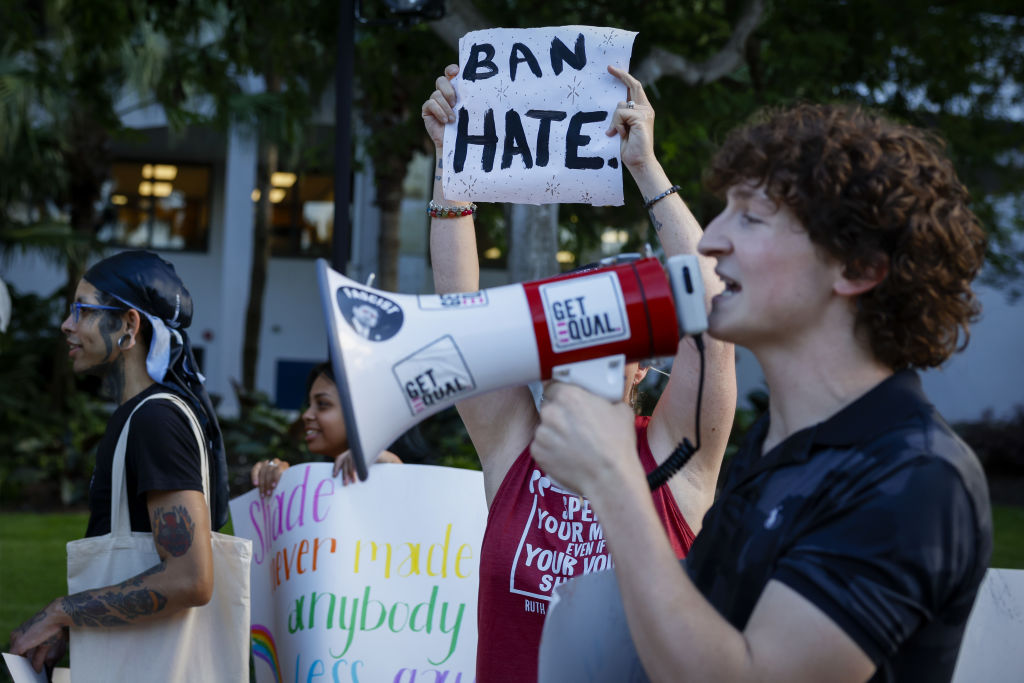Four-fifths of Americans believe that speech can be a form of violence, according to a new poll.
As part of its quarterly Free Speech Index, the Foundation for Individual Rights and Expression (FIRE) — in collaboration with YouGov — surveyed 1,000 Americans about their views on free speech. Only 20% completely disagreed with the statement “words can be violence”, and a combined 80% of respondents said the statement at least “slightly” represented their thoughts on the matter. That figure includes 22% who said the statement reflects their thoughts “completely”.
Respondents were pessimistic about the current state of free speech in the US. Slightly more than half at least slightly believed the First Amendment goes too far in protecting free speech, and 64% believe the country is headed in the wrong direction on the issue. Fewer than half said they were not worried at all about losing their jobs as a result of something they’d said, and only 24% believed the right to freedom of speech was very or completely secure.
The survey also found low levels of support for several types of constitutionally protected speech. Only 37% said Americans definitely or probably should have the right to use profanity when speaking with elected officials, and only 55% said Americans should have a right to mock candidates for public office in parody videos. The latter question was inspired by a California law, which was recently blocked in court, banning political “deepfakes”.
These results track with prior polls’ findings that, while Americans strongly support free speech in the abstract, they’re skeptical about the specifics, particularly when it comes to controversial speech. For example, Kamala Harris’s running mate Tim Walz said in a vice-presidential debate at the start of this month that the First Amendment does not protect hate speech or disinformation — a statement US legal precedent does not support.
The idea that speech can constitute violence has flourished at universities in the past decade, and has been received positively in some corners of the media. Since 7 October last year, this has played out in the form of pushback against anti-Israel protesters in the name of combating antisemitism. For instance, in March, Texas Governor Greg Abbot ordered universities to “update free speech policies to address the sharp rise in antisemitic speech”.
Meanwhile, the survey did find several areas where free-speech beliefs remained strong. An overwhelming majority, 87%, said one should be allowed to speak freely during a public comment session, and 73% said one should be allowed to criticize a public official during a council meeting. “Equating words with violence trivializes actual physical harm, shuts down conversations, and even encourages real violence by justifying the use of force against offensive speech,” FIRE President Greg Lukianoff said in a statement accompanying the new report. “Free speech isn’t violence, it’s the best alternative to violence ever invented.”











Join the discussion
Join like minded readers that support our journalism by becoming a paid subscriber
To join the discussion in the comments, become a paid subscriber.
Join like minded readers that support our journalism, read unlimited articles and enjoy other subscriber-only benefits.
Subscribe